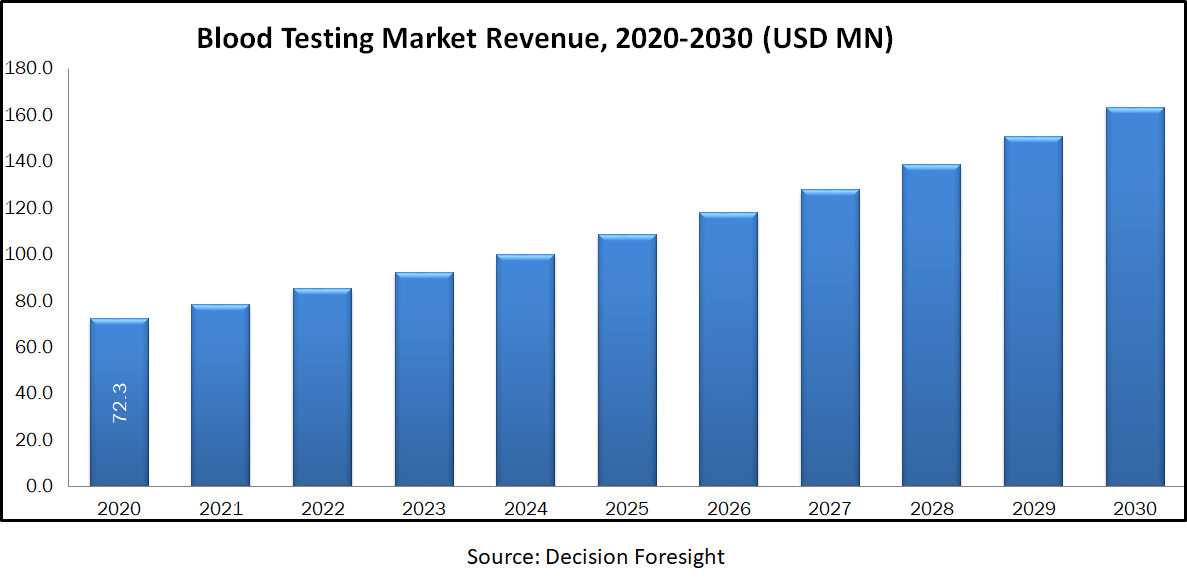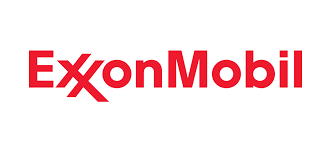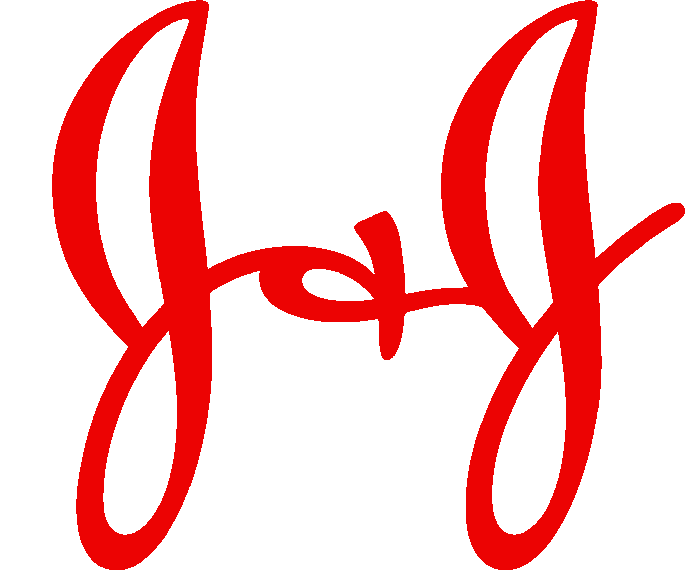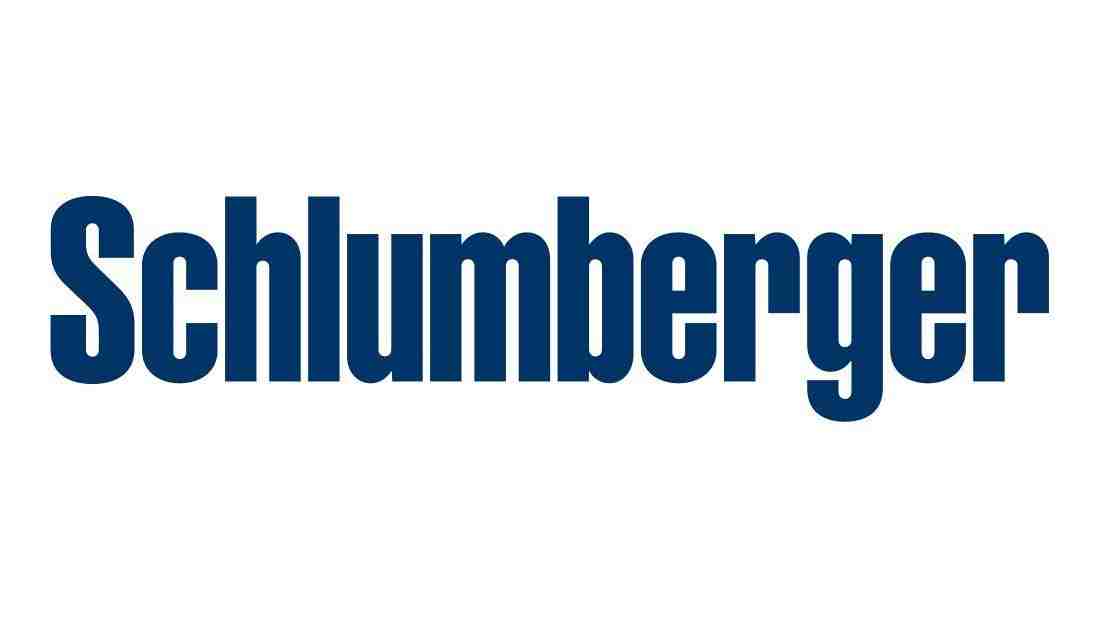Blood Test Market was valued at USD 72.25 billion by 2020, growing with 8.5% CAGR during the forecast period, 2021-2030. A blood test is a blood sample obtained from a vein in the arm with a needle. It enables for blood analysis and the diagnosis of certain illnesses. Blood testing is a clinical examination done on blood samples obtained from the patient's body using a needle or finger puncture to determine the patient's health status. Blood culture testing can assess organ function and how well recovery is progressing. These tests are common, and even routine check-ups may necessitate one. Blood tests are frequently used in health care to understand biochemical and physiological states, mineral content, pharmaceutical medication efficacy, organ function, illness, and drug testing to identify drug misuse. Multiple tests for particular blood components are frequently combined into a single test panel known as a blood panel or blood work.
The growing degree of patient knowledge regarding different self-testing and home diagnostic tests is anticipated to affect the development of the worldwide blood testing market. Patients suffering from illnesses such as diabetes are anticipated to make a major contribution to the growth of the worldwide blood testing market. Health professionals are increasingly reliant on diagnostic care, which is aided by a variety of medical and diagnostic instruments. It provides equivalent testing accuracy to laboratory tests and a shorter delivery time, which are anticipated to boost blood testing demand.
Market Dynamics and Factors:
A continuing growth in the incidence of chronic diseases, along with a high demand for quick solutions for assessing health problems, is projected to provide considerable impetus to the market in the future years. This is likely to create profitable prospects for operating organizations, as blood testing is essential for illness monitoring on a regular basis. Furthermore, clinics, hospitals, and other healthcare institutions are offering sophisticated testing to give quick services. The global increase of COVID-19 patients is increasing the necessity for large-volume diagnostic testing. The global prevalence of diabetes is projected to grow from 9.3 percent in 2019 to 10.9 percent by 2045 according to the International Diabetes Federation's 2019 report. The need for blood glucose tests will be increased, therefore supporting market growth.
Market Segmentation:
Based on test type, the global blood testing market is divided into Polyurethanes, Cortisol, Creatinine, COVID-19, Vitamin D, Glucose, Thyroid-stimulating hormone, High sensitivity CRP, Testosterone, ALT, Direct LDL, Lipid panel, and others. Based on the Product & Services (Reagents and Kits, Instruments, Outright Purchase, Rental Purchase, Software and Service), By Technology (Rapid Tests, Western Blot Assays, NGS, NAT, ELISA), End User market is segmented into (Hospitals, Blood Banks, Diagnostic Centers), Geographic breakdown and analysis of each of the aforesaid segments includes regions comprising North America, Europe, Asia-Pacific, and RoW.
Geographic Analysis:
The biggest market share was North America in 2020, followed by Europe. The growth of the North American blood testing market has been driven, for example, by increased demand for blood transfusions, an increased number of Blood donations, an increasing prevalence of contagious diseases in hospitals and diagnostic centers and by the growing prevalence of new pathogens. Due to the economic developments in the rising economies of China, Japan, and India, the Asia-Pacific market will develop in the forecast period with the greatest growth. Strong patients, magnifying the Geriatric population, growing health consciousness, increasing disposable incomes, increasing the living standard and improving medical infrastructure are the major elements regulating regional success.
Competitive Scenario:
The blood testing market, which is highly competitive, consists of a few major players. The key players of global blood testing market are Grifols (Spain), BioMérieux (France), Abbott Laboratories (US) , Bio-Rad Laboratories (US), Siemens Healthineers (Germany), Thermo Fisher Scientific Inc. (US) ,Ortho Clinical Diagnostics, Inc.(US), Becton, Dickinson and Company (US), DiaSorin (Italy), GFE (Germany), Trinity Biotech (Ireland), Danaher Corporation (US), Merck Millipore (Germany), F. Hoffmann-La Roche AG (Switzerland),GE Healthcare (US), Perkin Elmer (US), Bio-Techne Corporation (US), and J Mitra& Co. Pvt. Ltd (India).
Blood Test Market Report Scope
| Report Attribute | Details |
| Market size value in 2020 | USD 72.25 billion |
| Growth Rate | CAGR of 8.5% from 2021 to 2030 |
| Forecast period | 2021 - 2030 |
| Quantitative units | Revenue in USD billion 2020 to 2030 and CAGR from 2021 to 2030 |
| Report coverage | Revenue forecast, Market Share Analysis, Sales Analysis, Competitor Analysis, Growth factors, and trends, Macro-economic indicator analysis, PORTER's Five Forces analysis, Pricing Analysis, PESTEL Analysis, Value Chain Analysis, COVID-19 Impact Analysis |
| Segments covered | By Test Type ( Cortisol, Creatinine, COVID-19, Vitamin D, Glucose, Thyroid-stimulating hormone, High sensitivity CRP, Testosterone, ALT, Direct LDL, Lipid panel, AST)By End User (Hospitals, Blood Banks, Diagnostic Centres ) By Product & Services (Reagents and Kits , Instruments, Outright Purchase, Rental Purchase, Software and Service) By Technology (Rapid Tests, Western Blot Assays, NGS, NAT, ELISA) |
| Regional scope | North America; Europe; Asia Pacific; Latin America; MEA |
| Key Country scope | U.S.; Canada; Mexico; U.K.; Germany; France; Italy; Spain; Japan; China; India; Malaysia; Singapore; South Korea; Brazil; Argentina; South Africa; Saudi Arabia; UAE; Turkey |
| Key companies profiled | Grifols (Spain), BioMérieux (France), Abbott Laboratories (US) , Bio-Rad Laboratories (US), Siemens Healthineers (Germany), Thermo Fisher Scientific Inc. (US) ,Ortho Clinical Diagnostics, Inc.(US), Becton, Dickinson and Company (US), DiaSorin (Italy), GFE (Germany), Trinity Biotech (Ireland), Danaher Corporation (US), Merck Millipore (Germany), F. Hoffmann-La Roche AG (Switzerland),GE Healthcare (US), Perkin Elmer (US), Bio-Techne Corporation (US), and J Mitra& Co. Pvt. Ltd (India). |







